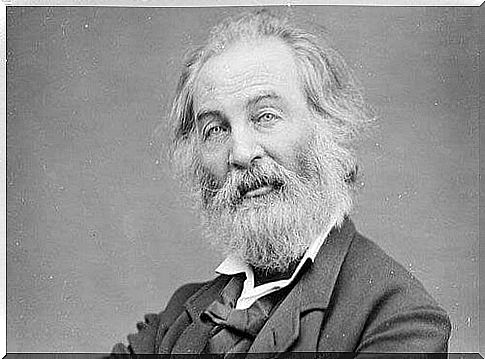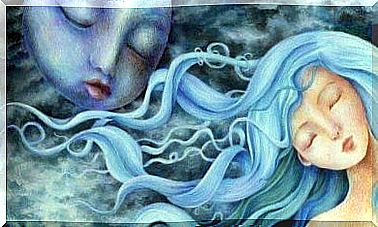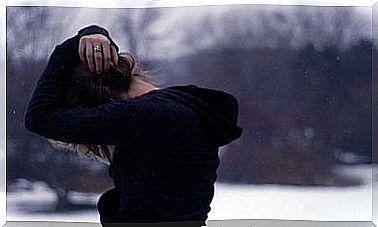Walt Whitman’s Aphorisms About Life

Walt Whitman’s aphorisms are quotes from the father of modern poetry. They also represent the voice of a man who perhaps revered life like no other. A man who has sparked controversy and scandals, but who has never stopped moving.
Whitman left us a poem that aimed straight at the heart. He moved away from the canons and complicated issues. This is also why he is considered the father of free verse, one who simply tries to let the heart speak, without putting aside reason, but preventing it from prevailing.
Walt Whitman’s aphorisms are also the lines of his poems. It is not easy to grasp the complex meaning outside the context of each piece, but some contain an enormous value in themselves. Below we present some aphorisms that convey part of that great love for life that this poet was able to stage through his verses.
Walt Whitman’s Aphorisms on Obedience
Walt Whitman’s sentences reflect a revolutionary of thought and speech. He never followed protocols, never fully respected the laws or customs of his time. He was endowed with a cheerful, lively and contagious sense of rebellion.
One of his verses reads: “Resist a lot and obey a little”. Much of the essence of this great poet is contained in this short sentence. He was a true innovator and for this reason it was not like him to emulate or passively follow what was handed down to him; he preferred to create from scratch.

The future
There is a lot of talk about the typical uncertainty of the future. Time, however, is indefinite. The present in an instant becomes the past. And tomorrow is already there in a second.
One of Walt Whitman’s quotes aims exactly to demystify these myths associated with time. And it reads like this: “The future is no less uncertain than the present”. And he was right. What’s so reassuring about the present that it makes it less uncertain about the future?
Simplicity in Walt Whitman’s aphorisms
One of the values most present in Whitman’s poetry is simplicity, which never conflicts with depth. This poet believed that the word should be genuine and not hide behind complicated terms or complex structures.
One of his sentences reads: “ The art of art, the glory of expression, the solar light of reading is simplicity “ . It is an exaltation of what is most authentic. In reality, it is very difficult to convey profound ideas in simple words. Instead, it is more common to do the opposite: to see simple ideas expressed in complicated ways.

Leaves of grass
Whitman’s most emblematic work was Leaves of Grass . The title takes us back to what defined the identity of this writer. Nature, pure and simple, is at the heart of his poems. He celebrated life in all its forms, as if it were a miracle.
This statement lets it be understood very clearly: “The smallest shoot shows that there is no death in reality; and that if it ever existed, it would lead to life ”. It means that life as a concept in itself is eternal. Every form of life, therefore, seems to have an end only to be reborn into something new.
Win and lose
Whitman was always interested in political issues. In addition, he worked as a volunteer nurse during the American Civil War. The pain and misery he witnessed on the battlefield hit him deeply.
This experience inspired the Secession War Notebooks . Many of his verses were also dedicated to this theme. One of these reads: “Battles are won and lost with the same heart”. With these words, the emphasis is on struggle rather than triumph or defeat.

Everything is ephemeral: aformisms by Walt Whitman
Despite being a man full of hope, Walt Whitman’s life was not easy. During his childhood he had to face economic problems. He started working at 11 and had to subsidize the edition of his first version of Leaves of Grass .
In the last years of his life he suffered a stroke which rendered him disabled. It was a cause of suffering for him to give the order to build his own mausoleum, preparing himself for death; he himself, who loved life. One of his phrases reads: “Pick the rose when it is time, because time, you know, flies, and the same flower that blooms today, will wither tomorrow”.

The contradiction
One of Walt Whitman’s aphorisms reads: “Do I contradict myself? Of course I contradict myself! I am big, I contain multitudes “. It is clear that his was a multidimensional world, in which the laws of logic acted without however predominating.
Whitman lived in a world where logic prevailed or, at least, this was what rationalism was trying to impose. He proved that the human being is not only common logic, but also that nuance that rationalists so much condemn: eternal contradictions.
Walt Whitman marked a before and after in the poem. But beyond that, he has left us wonderful verses that are like a balm. He was brave, because he dared to claim happiness and hope in an age that lacked both values.








